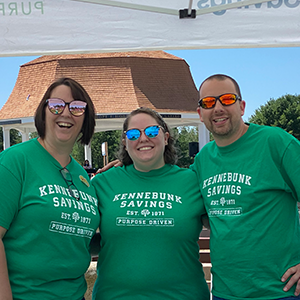
Older adults are a vulnerable population when it comes to financial exploitation. It’s important for everyone to be familiar with the most common deceptive practices! Here are five common scams targeting older adults.
- SSA Scam: Telephone scammers will prey on fear — impersonating Social Security Administration officials, threatening to revoke benefits unless a payment is made or personal information is volunteered.
- Robocalls: In various variations on the SSA Scam, hackers will alter Caller ID to appear to be calling from a bank or credit card company — so that even if you’re savvy enough to Google the number, you might still get fooled!
- Romance Scams: In this scam, fraudsters play on a different weakness: the heart! They create fake profiles on dating sites, attempt to earn your trust, and then attempt to rob you.
- Imposter Family Friend: Scammers call and pretend to be a grandchild — they might glean this information from social media — and claim to be in trouble.
- Fake Tech Support: There are both high-tech and low-tech versions of this scam, in which a criminal attempts to get your money to resolve a nonexistent computer issue. Some malicious pop-up windows attempt this, while other scammers just cold call people and claim there’s a problem with your personal devices.
There are some universal red flags for these kinds of scams. Neither Best Buy nor the Federal Government is going to ask for payment in the form of a pre-paid gift card, but hackers will. If you suspect the caller ID is compromised, offer to hang up and call back. Your financial institutions won’t have a problem with this, but a bad actor will.
And when we think about scammers, we often imagine them as strangers, but it is important to mention that, according to the AARP, most financial abuse suffered by older adults is perpetrated by someone they know:
Some warning signs include: a caregiver or family member who suddenly asks for access to your loved one’s accounts or possessions, changes in their financial practices such as new credit cards or unopened bank statements, or a financial agent who isn’t following your loved one’s wishes.
If you suspect abuse of any type, report it to local law enforcement right away. You can also visit the AARP Fraud Watch Network for further information and resources.
Questions? Concerns? Contact our Customer Care team at 1-800-339-6573.


